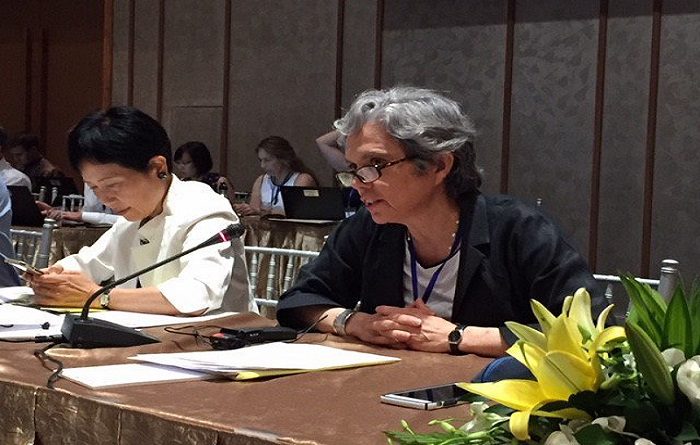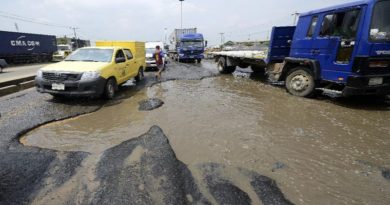E-Course on gender-environment nexus debuts at GEF Assembly
To spread awareness and understanding of the relationship between gender and environment, and how to mainstream gender in environmental projects and programs, an open online course on gender and environment is now available. The e-course was recently launched by the Global Environment Facility (GEF), the United Nations Development Programme (UNDP) and the GEF Small Grants Programme (SGP) at the sixth GEF Assembly taking place in Danang, Vietnam.
Addressing gender equality helps achieving better environmental outcomes; and without a gender-responsive focus, environmental programmes can perpetuate and even widen inequality.
The e-course is aimed at people working on environmental issues in order to improve their understanding of the links between gender and environment and how integrating gender considerations can advance environmental sustainability. By the end of the course, participants will gain the knowledge and tools necessary to understand the role of gender in environmental projects and programs.
By including a specific module addressing the gender and climate change nexus, the e-course also contributes to one of the priority areas under the UNFCCC gender action plan established at the recent UN Climate Change Conference (COP23), on ‘knowledge sharing, capacity-building and communication’.
As the training has been released in an open-source format, it is available to all Parties and observers to the UNFCCC to access, including any National Focal Points and National Gender Focal Points who may be interested.
“The Gender and Environment e-course is the first of its kind and it will be a valuable resource for the environmental community in its efforts to be more gender responsive. My hope is that this course will not only help raise awareness and build capacity to implement GEF’s new policy on Gender Equality but also help catalyse actions that have the potential to materialize greater environmental impact through gender-responsive approaches and result,” said Francoise Clottes, GEF Director of Strategy and Operations.
Structured around six modules – an introductory module and five modules on gender dimensions linked to biodiversity, climate change, land degradation, international waters, and chemicals and waste – the e-course provides examples and data to demonstrates the linkages between gender equality and environmental sustainability and shows how gender-responsive policies and projects support environmental outcomes.
Its interactive format and user-friendly interface makes this new learning tool ideal for people from all background interested in gender and environment.
The e-course is a concerted effort with valuable contributions from the International Union for Conservation of Nature (IUCN), UN Women, UNDP, UN Environment and the Secretariats of the Multilateral Environmental Agreements that the GEF serves including the Convention on Biological Diversity, the United Nations Framework Convention on Climate Change, the United Nations Convention to Combat Desertification and the Basel, Rotterdam and Stockholm Conventions, among others.



